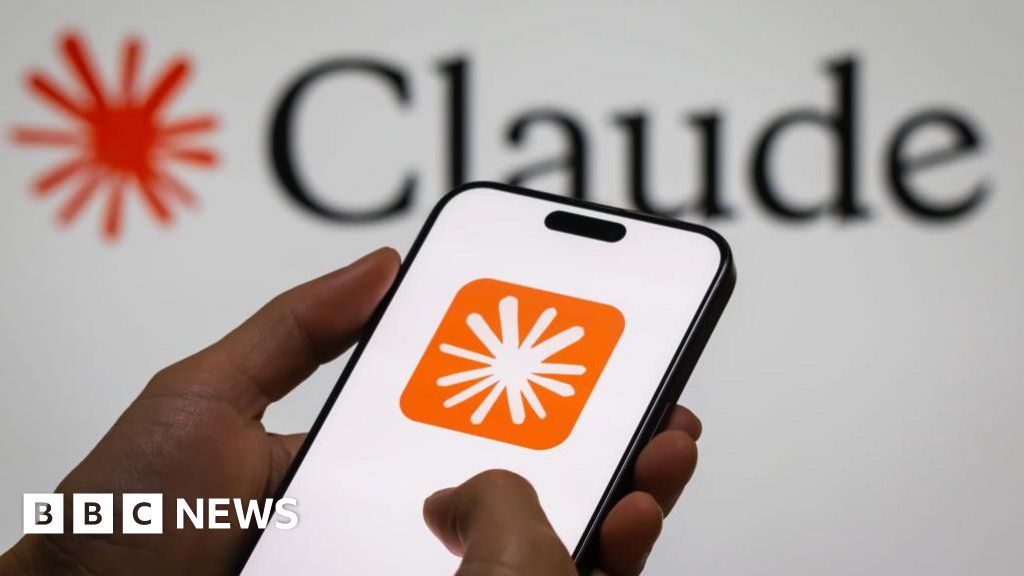ARTICLE AD BOX
Image source, Getty Images
The boss of one of the world's biggest crypto-currency exchanges has ruled out restricting ordinary Russians from using the service.
Binance founder and chief executive Changpeng Zhao, told BBC Radio 4's Today programme: "Many normal Russians do not agree with war."
Major crypto-currency exchanges have been asked by Ukraine to block Russian users.
One financial expert warned the war could become a "crypto conflict".
In a tweet sent on Sunday Ukraine's Deputy Prime Minster Mykhailo Fedorov asked major crypto-currency exchanges to block the addresses of ordinary Russian users, not just politicians.
I'm asking all major crypto exchanges to block addresses of Russian users.
It's crucial to freeze not only the addresses linked to Russian and Belarusian politicians, but also to sabotage ordinary users.
The BBC is not responsible for the content of external sites.View original tweet on Twitter
The value of Bitcoin has risen 13% since the Russian invasion of Ukraine, according to the Reuters news agency.
There has been speculation Russian oligarchs may pour their money into crypto-currencies to avoid sanctions and other restrictions.
And the Telegraph newspaper called crypto-currency "Putin's sanctions-busting super-weapon".
But Mr Zhao said: "We're not against any people.
"We differentiate between the Russian politicians who start wars and the normal people.
"Many normal Russians do not agree with war."
"We don't control the industry.
"I can publish my sanction list, you can publish yours.
"Guess what? No-one else is going to follow.
"It just moves Russian users to other smaller platforms."
'Financial freedom'
In a statement published earlier, Binance said it would not unilaterally freeze millions of "innocent users'" accounts.
"Crypto is meant to provide greater financial freedom for people across the globe," the company told BBC News.
Any unilateral ban would "fly in the face" of the reason crypto existed.
But "while minimising the impact to innocent users", it was taking the steps necessary to enforce sanctions.
'Libertarian values'
Mr Zhao said: "There are, I think, a few hundred individuals that are on the international sanction list in Russia - those are mostly politicians, et cetera.
"We follow that very, very strictly.
"And we are not in a position to sanction populations of people.
"We are not political - we are against war but we are here to help the people."
Several other crypto-currency exchanges have also ruled out freezing all Russian accounts, according to a Vice News investigation.
Kraken's chief executive Jesse Powell, for example, said its platform would not freeze Russian accounts, which would go against Bitcoin's "libertarian values".
5/6 Sometimes the hardest thing about having power is knowing when not to use it. Our mission is better served by focusing on individual needs above those of any government or political faction. The People's Money is an exit strategy for humans, a weapon for peace, not for war.
— Jesse Powell (@jespow) February 28, 2022The BBC is not responsible for the content of external sites.View original tweet on Twitter
But Tom Keatinge, director of the Centre for Financial Crime and Security Studies (CFCS), at the Royal United Services Institute (RUSI) think tank, warned exchanges that failed to follow the rules might find themselves cut off from financial services.
"Those banks that provide services to crypto exchanges will be watching their clients' activities very carefully to ensure that they are diligently applying the checks required by the expanding sanctions regimes against Russia," he said.
The war in Ukraine could become the first meaningful "crypto conflict", Mr Keatinge told BBC News, as those seeking to "evade sanctions, protect their savings or avoid a collapsing banking system turn to cryptocurrencies for solutions".
Criminals laundered $8.6bn (£6.4bn) of crypto-currency in 2021, up 30% on the previous year, according to a report by blockchain data company Chainalysis published prior to the invasion.
And the Financial Times revealed: "Trading between the Russian rouble and crypto assets such as Bitcoin and Tether had doubled since the assault on Ukraine began, reaching $60m a day."
Crack down
The increase comes as governments have sought to cut Russia out of the financial system.
On Tuesday, the British government announced measures to crack down on money laundering by Russian "oligarchs and kleptocrats", including new powers to seize crypto assets.
Chainalysis's Caroline Malcolm told BBC News: "As with the traditional financial system, Russian oligarchs could leverage crypto-currency to evade the sanctions."
But it was unlikely designated persons under sanctions would move around large quantities of crypto-currency now.
"Russia's elite and financial authorities have been preparing for sanctions for some time," she said.
"To the extent that crypto-currency may be used to evade sanctions related to this crisis, it likely would have happened slowly over the past several months."
And analytics tools used for following money were more effective than those "capable of disrupting Russia's use of a network of traditional bank wires or physical cash to evade sanctions".
Tom Robinson, of blockchain analysis company Elliptic, said crypto-currency could be an attractive haven for the wealth of oligarchs as it could not be seized and no-one could prevent it being moved.
But it was "highly traceable, which means that they would find it difficult to spend anywhere that sanctions are enforced".

 3 years ago
67
3 years ago
67








 English (US) ·
English (US) ·